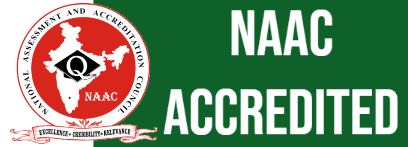Student centric methods, such as experiential learning, participative learning and problem-solving methodologies are used for enhancing learning experiences.
Teaching-learning methods adopted by the faculty members include Lecture Method, Interactive Method, INTERNSHIPS, PRACTICAL LEARNING WITH RESPECT TO COURT PROCEDURE. The Teaching-learning activities are made effective through PRACTICAL LEARNING and special lectures. Classes are conducted through PowerPoint presentations to make learning interesting besides oral presenting methods. Lecture method and seminars are also introduced: This conventional method is commonly adopted by all teachers and the same is monitored by the principal. This method facilitates the teacher to interpret, explain and revise the content of a text for better understanding of the subject by the learners. Interactive method: The faculty members make learning interactive with students by motivating student participation in group discussion, skits role-play, subject quiz, news analysis, discussion, and questions and answers on current affairs Colleges provide an effective platform for students to develop the latest skills, knowledge, attitude, values to shape their behavior in the correct manner. The College conducts innovative programs which stimulate the creative ability of students and provide them a platform to nurture their problem-solving skills and ensure participative learning. The College Implements student-centric methods of enhancing the lifelong learning skills of students. Faculty members make efforts in making the learning activity more interactive by adopting student-centric methods.
- Experiential Learning: College conducts add-on programs to support students in their experiential learning. The College communicates the following experiential learning practices to improve creativity and cognitive levels of the students –
- legal sessions are conducted with content beyond syllabus experiments.
- Industrial Visits to engage them in experiential learning while visiting the organization.
- Participatory Learning:
In this type of learning, students participate in different activities such as seminars, group discussions, internal debates, internal moot courts and participation of students in the national moot court competitions outside the college.
- Annual cultural program – This is organized every year for the students of the College to give an opening to their creativity.
- Regular Quiz competitions are organized for student participation at intra or inter-College levels.
- Seminar Presentation
- Problem-solving methods: College encourages students to acquire and develop problem solving skills. For this, the College organizes expert lectures on different topics, participate in different legal competitions.
- Regular assignments
- Case studies discussion
- Class presentations
- Debates within the College event.

